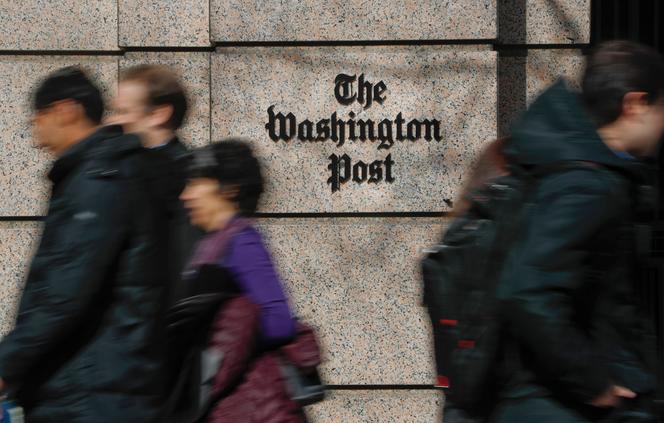


In the space of a weekend, the internal crisis that has rocked the Washington Post since Friday, October 25 has come to look like an earthquake, less than a week before the presidential election on Tuesday, November 5 that will decide between Democrat Kamala Harris and Republican Donald Trump.
So much so that the turmoil shaking one of the most important publications in the US is already having major economic consequences. According to the public broadcaster NPR, the daily paper lost more than 250,000 subscribers between Friday, October 25 and noon on Tuesday, October 29. The prestigious paper's owner, Amazon founder Jeff Bezos, is suspected of having forced the editorial board to choose neutrality in the presidential election for the first time since 1988, a move that has outraged a portion of its readers. The wave of desertions represents 10% of its 2.5 million subscribers, an unprecedented drop for the press in such a short space of time.
It all started on October 25 when CEO William Lewis announced that the paper – famous for exposing the Watergate scandal in 1974 – would refrain from endorsing any candidate in the 2024 presidential election and future ones. Yet an hour later, two Washington Post reporters explained in a detailed article about the decision that an endorsement for Harris had been in the works and that the choice to block publication came from Bezos.
The announcement immediately sent shockwaves through the editorial board. The journalists' union denounced the interference on the eve of "an immediately consequential election." One of the paper's most seasoned columnists, Robert Kagan, resigned in the immediate aftermath, denouncing a "capitulation." "We are in fact bending the knee to Donald Trump because we're afraid of what he will do," he said a little later on CNN, referring to the meeting between Trump and David Limp, CEO of aerospace company Blue Origin – owned by Bezos – that same day.
For his part, Bezos denied through an op-ed published by the Washington Post on Monday, October 28 that his personal interests were behind the lack of support for a US presidential candidate. According to the billionaire, this decision was "made entirely internally." He insisted that he "[does] not and will not push" for his personal interests in the editorial choices of the newspaper he has owned since 2013. While endorsements by newspaper editorial boards are a tradition in the US, they "actually ... create a perception of bias, a perception of non-independence," he asserted. According to the Amazon founder, the decision to end it is "the right one."
You have 39.86% of this article left to read. The rest is for subscribers only.
